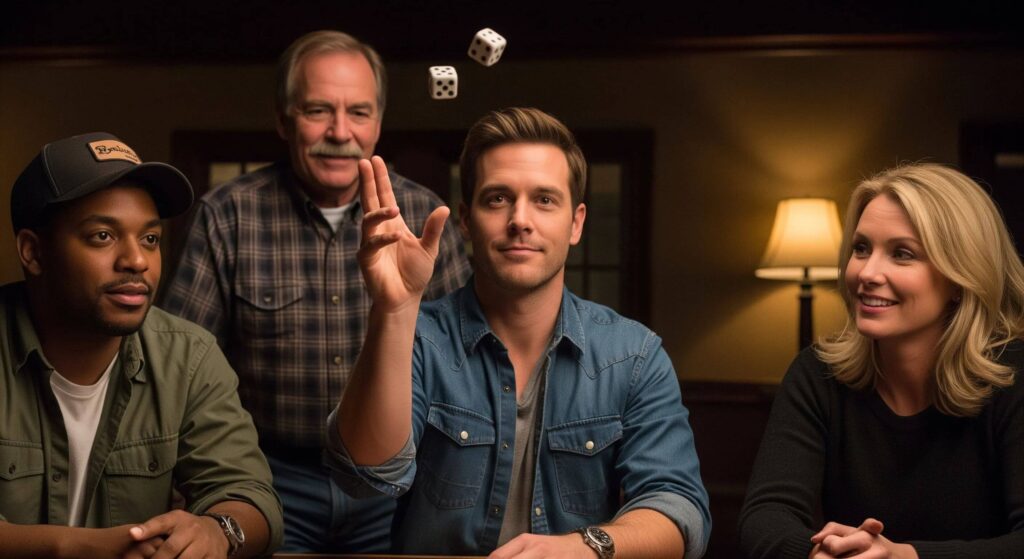Responsible gambling: practical tips to stay in control
Gambling, if treated right, can be a fine dance of mathematics, psychology, and discipline. But it doesn’t take much to let the rhythm slip—before you know it, you’re out of step and chasing after losses like a fish chasing a shiny hook. Years of working both the tables and the back-end operations have taught me one thing: responsible gambling isn’t a suggestion—it’s a requirement. It’s what separates a skilled player from a desperate wagerer. In this guide, I’ll walk you through the critical, often overlooked techniques to keep your play sharp, safe, and well within your control.
Recognise gambling as entertainment, not income
The biggest illusion beginners buy into is chasing the “big win.” Let’s set the record straight—it’s not a profession unless you’re a card counter with airtight strategy and a dozen team members. For the rest, it’s amusement. Treating gambling like a side hustle is a shortcut to financial ruin. In fact, when you steer your mindset to see gambling the same way you’d see a movie ticket or dinner out—something you pay for and enjoy in the moment—you stop feeling that itch to recover every rupee. That shift changes the game entirely. Don’t measure success in winnings. Measure it in enjoyment and in how well you stuck to your limits.
Set strict limits—and stick to them
We’ve all seen players bring ₹5,000 to the table, lose it in an hour, then tap into savings with a wobble in their voice. Never fall into that spiral. Establish both time and money limits before you play. If you’re playing online, most platforms allow you to set self-imposed deposit caps. Use them. One mechanism I’ve often recommended is the envelope method—withdraw your gambling budget in cash, seal it in an envelope, and when it’s empty, shut the shop. No dipping into bank transfers, no logging in to Neteller, no exceptions. Treat those rules as sacred. Trust me, they’ll protect your bankroll and your conscience.
Avoid chasing losses—it’s a never-ending trap
Losses sting. That’s natural. But chasing them? That’s a rookie mistake wrapped in panic. When you play catch-up, all the numbers, odds, and intuitive sense you rely on go flying out the window. I’ve seen players triple their wagers on cold streaks, thinking this “next hand” will fix everything. It almost never does. The better play is to walk away. No emotional decisions. Reassess the next day if you really have to, but never from a feeling of desperation. You don’t win by being stubborn—you win by being smart. Emotions don’t belong on your betting slip.
Use self-assessment tools available online
Most reputable gambling platforms offer tools where you can monitor your behaviour. These include stat dashboards, gambling history, deposit tracking, and even self-exclusion options. Being brutally honest with yourself while reviewing this data can make a world of difference. If you notice activity spikes in late-night hours or sudden jumps in deposit amounts, that’s a clear red flag. Some platforms also offer gambling “health check” assessments—don’t ignore them. They’re there for a reason. The numbers don’t lie, and sometimes it’s our own behaviour we fail to see clearly until it’s laid out in front of us in data form.
Know the signs of unhealthy gambling
There’s a fine line between passion and compulsion, and it’s easy to trip into the wrong side if you’re not vigilant. Do you constantly think about recovering losses? Are you hiding your sessions from family or lying about how much you’ve spent? Have your gambling sessions extended longer and longer into the night? That’s not ambition—that’s dependency. When gambling starts to feel more like an obligation than enjoyment, it’s time to pull the brakes. Over the years, I’ve helped dozens walk away once they’ve recognised the early symptoms. Trust your gut, but verify with logic—and if that logic says step back, listen to it.
Lean on support systems when needed
No shame in asking for help. Whether it’s community forums, certified counsellors, or someone in your family who keeps you grounded—use the support around you. Some excellent tools and helplines are available in India that offer anonymous, judgement-free assistance. Additionally, online communities can introduce you to other recovering players who’ve been there, done that, and come out stronger. Maintaining control over your gambling is not an island effort. Surround yourself with accountability, and it gets easier to stay on track. And when gambling becomes mindful, it becomes meaningful.
Final thoughts: discipline is your sharpest edge
You can memorise odds, count cards, and know every stat in the book—but without discipline, your skill won’t stand a chance. Responsible gambling relies not on flashy wins but on the quiet victories—the times you walked away ahead, stuck to your limits, or turned down that tempting “one last spin.” Those are the wins you build a lifetime of play on. If there’s one takeaway, let it be this: control is your real jackpot. Protect it like the last chip on your stack, because once that’s gone, luck won’t save you—but self-control just might.

